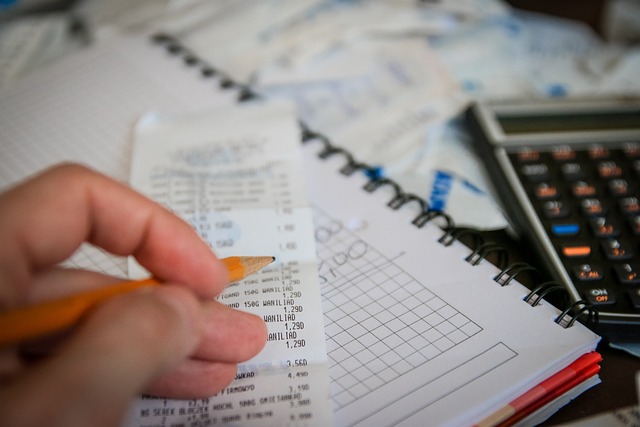Last Updated on: 31st May 2024, 02:11 pm
As the head of a business, the last thing you want is to find it cannot repay its liabilities as and when they fall due. Whether these debts can lead to personal hardship is a common anxiety for directors, with the fear that the business’ debts can lead to losing their home in the worst-case scenario.
How a business’ debt might affect your personal finances will depend on how it’s been set up and how you’ve acted as its head.
Limited companies, sole traders, and personal liability
How your business has been incorporated has a significant impact on how its debts might affect you. If you incorporated the business in a limited company, you receive limited liability protection. This means that the company’s debts belong solely to the company, protecting the directors and shareholders from hardship if the company enters financial trouble.
If you conduct your business as a self-employed sole trader, you don’t have limited liability protection. You and your business are one and the same.
When limited liability protection doesn’t apply
Despite limited liability ringfencing a limited company’s finances, there are times where directors can be held liable for their company’s debts.
These situations include:
- Directors have signed personal guarantees
Signed to secure business funding, a personal guarantee is security for a lender. If the company encounters financial difficulty, the limited liability is bypassed, and the director could be held personally liable for the guaranteed amount. - Bounce Back Loan misuse
The UK government launched the Bounce Back Loan Scheme as a measure to protect businesses against the hardships of the coronavirus pandemic. If these loans were obtained through falsified figures or the funds were used inappropriately, the directors could be found guilty of Bounce Back Loan misuse. Personal liability is a possible penalty for this. - Overdrawn director’s loan account
A director’s loan account is a record of transactions between the director and the company. The account becomes overdrawn when the director owes the company money. If the company enters liquidation, the director is liable for any overdrawn director’s loan account. - Wrongful trading
If a company becomes insolvent and cannot repay its liabilities as and when they fall due, the directors should act to alleviate that insolvency. If directors continue trading in the knowledge that the company can’t cover its outgoings or deliver the work promised, they could be found guilty of wrongful trading. Consequently, they could face a directors ban of up to 15 years and personal liability for the company’s debts.
Minimising the risk of personal liability for a company’s debt
If you’re a limited company director, although the company’s insolvency won’t affect your personal finances in itself, if your company cannot repay its liabilities as and when they fall due you should act in the company’s best interests. You should take advice from an insolvency practitioner. These licensed and regulated professionals can analyse your company’s situation and suggest the best route forward.
Depending on the company’s circumstances, the following solutions may be possible:
- Repaying in instalments
Depending on the volume of the company’s debts, it may be possible for the company to repay a portion of its debts in monthly instalments at a rate tailored to the company’s affordability. This can be done through a Company Voluntary Arrangement (CVA). The process usually lasts five years, wherein the company repays an agreed amount of its unsecured debts each month. The company continues trading for the arrangement’s duration, maintaining brand reputation, with all remaining unsecured debt written off once the arrangement concludes.
Sole traders can apply for a similar Individual Voluntary Arrangement (IVA). - Restructuring through administration
If repayment isn’t feasible, the company is under intense creditor pressure, or more deeper-rooted issues need to be addressed, then administration may be a viable solution. During this, the insolvency practitioner investigates the company’s financial position and wider structure, making the changes necessary to return the company to a profitable state. The process protects the company from creditor pressure, providing breathing space to formulate a way forward. Speak to an insolvency practitioner to clarify whether administration would be a suitable pathway out of insolvency or if an alternative route would be more appropriate. - Closing through liquidation
If recovery isn’t feasible due to the volume of debt or creditor pressure, then it may be best to close the insolvent company. The insolvency practitioner will suggest the company enters an insolvent Creditors Voluntary Liquidation (CVL), drawing a line under the company’s debts and leaving the directors free to walk away without the risk of personal liability if they’ve acted in the company’s best interests.
Although you may hear of companies ‘going bankrupt’, this only applies to individuals and sole traders in the UK rather than the bankruptcy legislation present in the United States. If your sole trader business has no feasible route out of insolvency, bankruptcy could be an option to remove burdensome debts.
To summarise
Sole traders are more likely to have a business’ finances affect them personally than limited company directors. This is likely due to limited liability protection separating the company’s finances from those of its directors. Situations can arise where this limited liability is bypassed, including if the company becomes insolvent and it has an overdrawn director’s loan account, directors have signed personal guarantees, have misused a bounce back loan, or have committed wrongful trading.
If your business is insolvent, speak to a licensed insolvency practitioner for guidance on the best route forwards, and to discuss your options.



